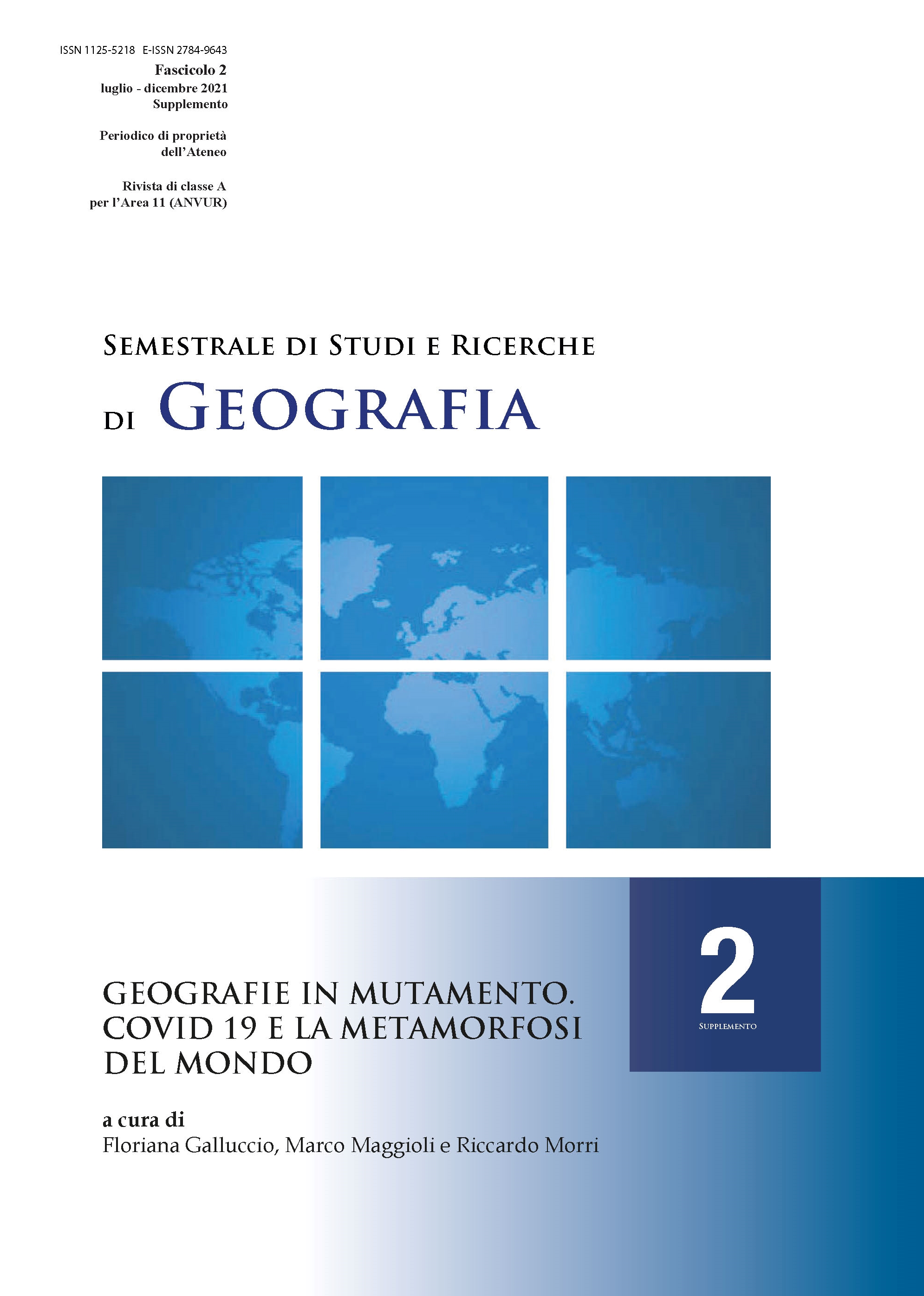Beyond the biomedical gaze: pandemics, racism and necropolitics as «total social facts»
DOI:
https://doi.org/10.13133/2784-9643/17645Keywords:
biopolitics, digital capitalism, security, Althusser, gentrificationAbstract
This article has two objectives. In the first place, it intends to show how the construction of the biomedical public discourse, shaped by the vision of virologists, doctors and epidemiologists, has become part of a broader governance device aimed at a radical restructuring of the social and productive relationships underlying our forms of life. Our central assumption intends to start from here: through a metaphor borrowed from urban geography studies we want to argue that both the Covid-19 epidemic and thepolitical management of the health emergency state are accelerating and favouring what can be called a further process of social, economic and racial gentrification of humanity. Secondly, the article intends to make a critique of the medical gaze starting from an analysis of the pandemic as a «total social fact». Attention will therefore be focused on the unequal material effects produced on the different segments of the population, not only by the social spread of the pandemic, but also by its purely medical management-codification. Particular attention will be paid here to the experience of the migrant population in Italy. The article therefore intends to highlight how the management and political governance of the pandemic in Italy do nothing but show, in other dimensions, the structural and institutional racism at the basis of what can be called «national social formation».
Downloads
Published
Issue
Section
License
Copyright (c) 2021 Semestrale di studi e ricerche di geografia

This work is licensed under a Creative Commons Attribution 4.0 International License.
Gli autori che pubblicano su questa rivista accettano le seguenti condizioni:- Gli autori mantengono i diritti sulla loro opera e cedono alla rivista il diritto di prima pubblicazione dell'opera, contemporaneamente licenziata sotto una Licenza Creative Commons - Attribuzione che permette ad altri di condividere l'opera indicando la paternità intellettuale e la prima pubblicazione su questa rivista.
- Gli autori possono aderire ad altri accordi di licenza non esclusiva per la distribuzione della versione dell'opera pubblicata (es. depositarla in un archivio istituzionale o pubblicarla in una monografia), a patto di indicare che la prima pubblicazione è avvenuta su questa rivista.
- Gli autori possono diffondere la loro opera online (es. in repository istituzionali o nel loro sito web) prima e durante il processo di submission, poiché può portare a scambi produttivi e aumentare le citazioni dell'opera pubblicata (Vedi The Effect of Open Access).


